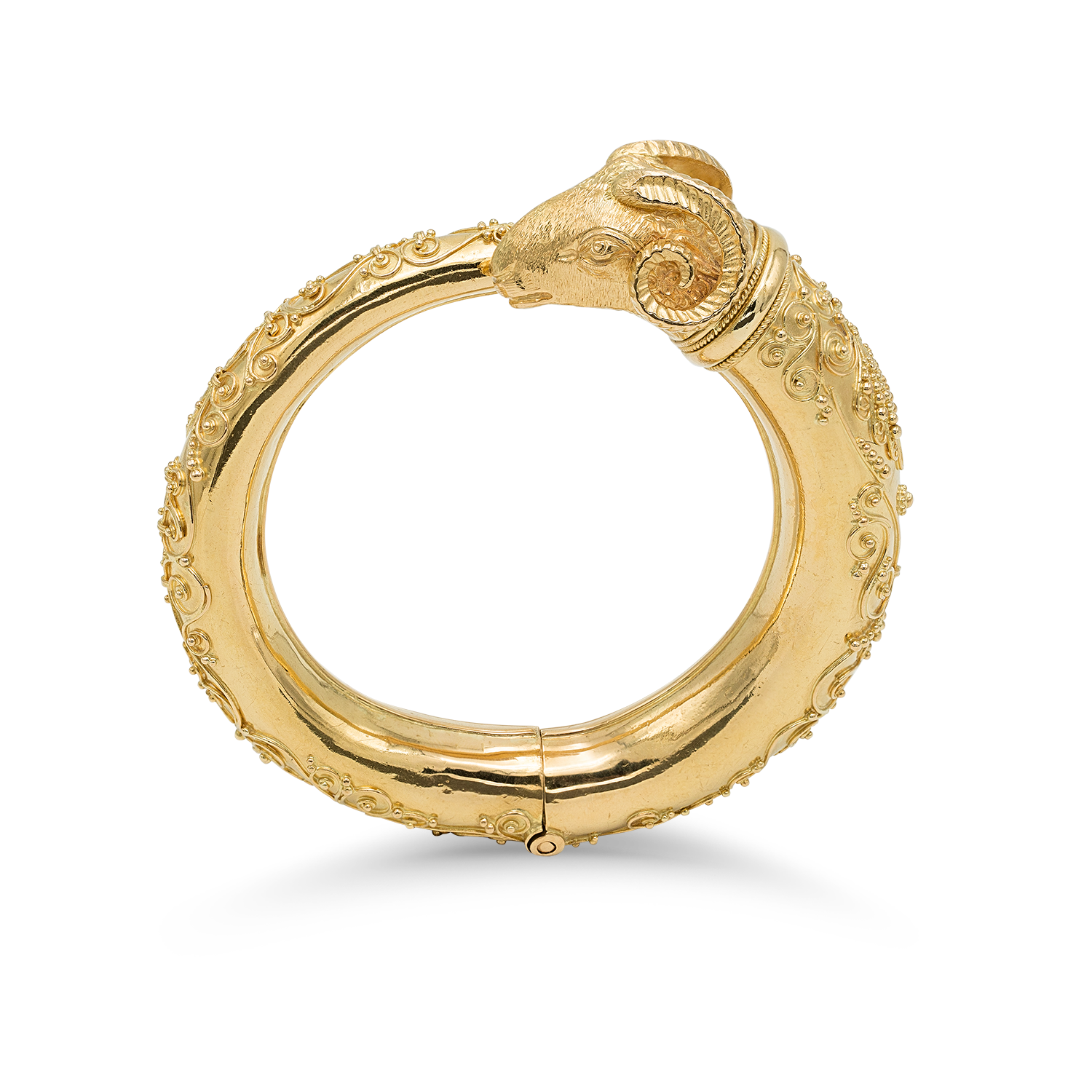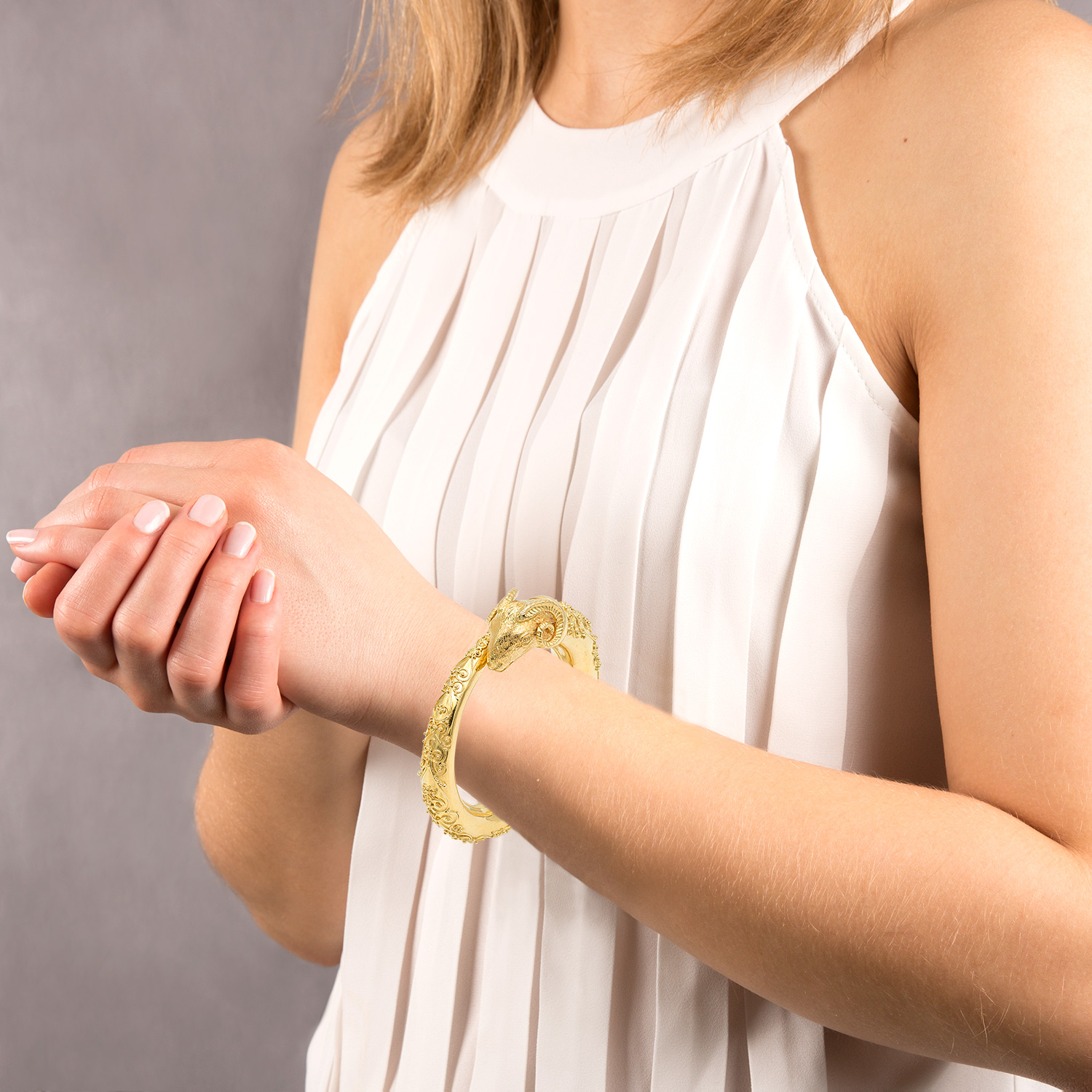MATERIAL
Impressive, asymmetrical bangle in yellow gold 20-22K (approximately 910), in an archaeological Etruscan style, a beautifully sculptured Ram’s head with engraved fur, everything decorated with granulated globules and tendril motives, mechanism with a built-in spring on the backside to open, handmade
MARK
No mark
SIZE AND WEIGHT
Inside circumference 16.5 cm, weight 72.9 g
CONDITION
Very good
ADDITIONAL FEATURES
Accompanied by a Lohri certificate
Reference-Number
FAB114
Victorian
(1839 to 1901)
Very British jewellery
The Victorian era is defined by the British monarch Queen Victoria who reigned from 1837 to 1901. The style of this era can be described as creative, optimistic, romantic and – of course – very British. Large pieces of jewellery decorated with enamel portraits and framed by decorative ornaments are particularly common. Lockets with engravings and pieces of jewellery in blossom, leaf or heart design with flamboyant combinations of coloured gemstones characterize the lavish jewels of this era. Exploring the jewellery of this era promises to be a buoyant affair.
Historicism
(1860 to 1880)
Creating the new from the past
In the second half of the 19th Century, an increasing number of artistic styles emerge that draw on past artistic styles and epochs of art history for inspiration. By newly interpreting these historic styles, jewellers create novel pieces in familiar designs. During this period of rapid development, historicism serves as a source of orientation and security. During this era, a wide range of diverse and fascinating pieces of jewellery emerge by integrating fresh aesthetics and novel goldsmith techniques.





